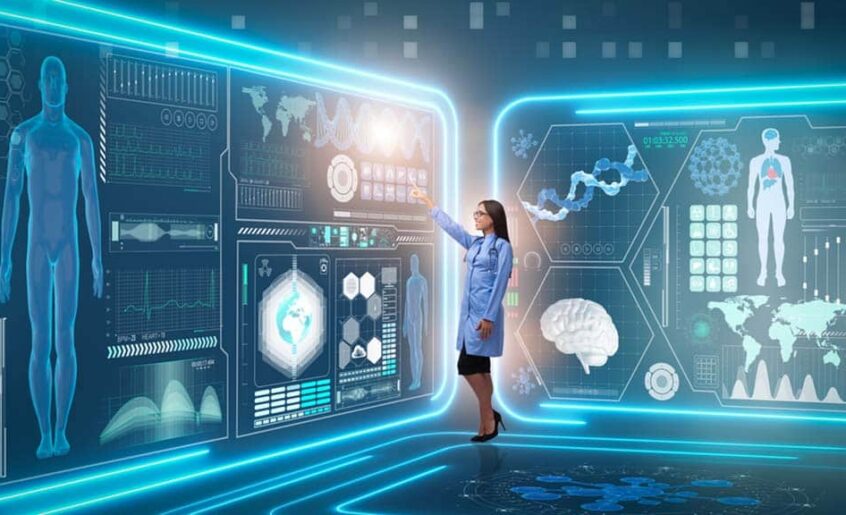Healthcare technology, commonly known as health tech, refers to the application of new technology in healthcare to improve various aspects of the system. This sector has gained significant momentum in addressing cost issues and implementing new technologies. Health tech includes various innovations, such as telehealth solutions, healthcare interoperability, and remote patient monitoring systems, which have become increasingly vital in recent years. In addition, healthcare data management, sharing, and analytics play a critical role in providing quality care.
Patient-Centric Approaches in Health Tech
The ‘Patient First’ approach is increasingly becoming a cornerstone in healthcare IT solutions. This strategy aims to educate patients and enhance their experience through responsive innovations. In 2021, this trend is expected to continue with a focus on patient engagement, mHealth solutions, and user-friendly UI/UX platforms. Online health insurance technology, which gained popularity in 2020, is anticipated to maintain its relevance in the coming year.
Evolution of Remote Patient Monitoring
The association of technology with healthcare has seen a rise in virtual healthcare since 2020, leading to more online appointments, televisions, and remote care. Physicians increasingly rely on remote patient monitoring (RPM) tools to track patients’ health conditions. RPM tools, including internet-based devices like health bands and IoT glucose meters, collect real-time data for physicians to interpret online, enhancing patient care and monitoring.
Advancing Health Equity through Technology
Health equity, which focuses on eliminating unfair health differences among population groups, has become a key area in healthcare technology. The disparities in healthcare access due to race, ethnicity, and geography, which were highlighted during the pandemic, are expected to receive increased attention in 2021. Investment in new healthcare technologies that address health equity will likely be a major focus for providers, suppliers, and payers.
Data Sharing and Interoperability in Healthcare
Data sharing and interoperability are anticipated to be integral in healthcare tech in 2021, particularly in light of the COVID-19 pandemic and vaccine rollouts. The integration of these elements into the US health industry’s IT infrastructure is crucial for the accessibility of integrated care services. The advancements in secure data sharing and interoperability systems are expected to make care services more accessible.
Telemedicine’s Role in Mental Health Care
Telemedicine has seen a significant rise in adoption for mental health care. With a large portion of the US adult population suffering from mental health conditions and limited treatment access, telemedicine offers a convenient and accessible solution. Physicians can conduct counseling sessions and therapy through video-conferencing, providing quality care to patients anytime, anywhere.
The Significance of EHR Interoperability Solutions
EHR interoperability solutions play a critical role in the evolution of healthcare technology. These solutions enable different healthcare systems to communicate and share patient data seamlessly, thus enhancing care coordination and patient outcomes. Here are the key aspects:
- Data Integration: EHR interoperability allows for comprehensive data integration across various healthcare platforms;
- Patient-Centered Care: Facilitates a more patient-centered approach by providing complete, accessible patient health records;
- Improved Healthcare Delivery: Streamlines processes, reduces redundancies, and improves the overall efficiency of healthcare delivery.
Comparative Table: 2020 vs. 2021 Healthcare Technology Trends
| Trend | 2020 | 2021 |
|---|---|---|
| Remote Patient Monitoring | Emerging | Widespread adoption |
| Health Equity Initiatives | Gaining attention | Central focus |
| Data Sharing and Interoperability | Developing | Advanced integration |
| Telemedicine in Mental Health | Growing use | Essential service |
| EHR Interoperability | Evolving | Critical infrastructure |
Conclusion
The trajectory of healthcare technology in 2021 is set towards further advancements. Remote patient care and communication, along with virtual care, are expected to gain significant attention. Healthcare organizations are likely to continue implementing tech-driven initiatives, with remote patient monitoring and telehealth being key focus areas.
